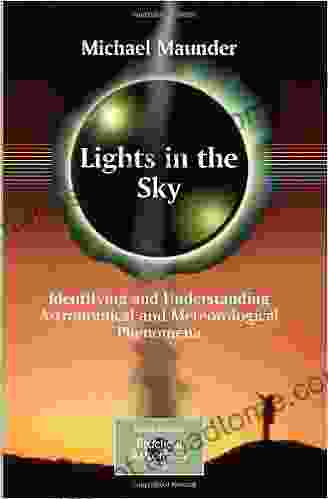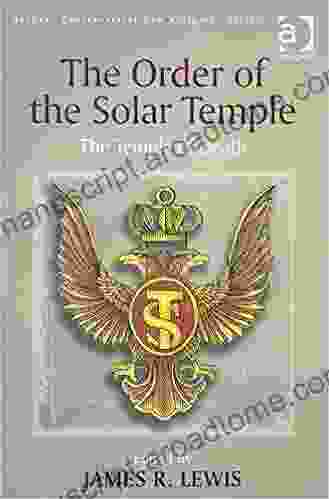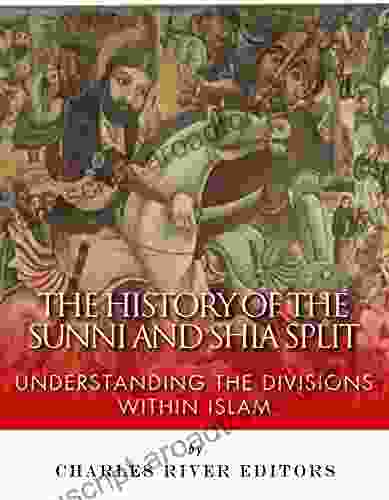Understanding The Divisions Within Islam: A Comprehensive Guide

4.1 out of 5
| Language | : | English |
| File size | : | 2278 KB |
| Text-to-Speech | : | Enabled |
| Screen Reader | : | Supported |
| Enhanced typesetting | : | Enabled |
| Word Wise | : | Enabled |
| Print length | : | 56 pages |
| Lending | : | Enabled |
Islam, a monotheistic religion with over 1.8 billion adherents worldwide, is a diverse and multifaceted faith that has played a significant role in shaping human civilization. However, within this vast religious landscape, there exists a complex web of divisions that have influenced the development and interpretation of Islamic beliefs and practices.
Historical Origins of Divisions
The divisions within Islam can be traced back to the early days of the religion. Following the death of the Prophet Muhammad in 632 CE, disagreements emerged over the succession of leadership and the interpretation of his teachings. These disputes eventually led to the formation of the two main branches of Islam: Sunni and Shia.
Sunni Islam, the largest branch with approximately 85% of all Muslims, emphasizes the importance of tradition and consensus in Islamic law and theology. Sunni Muslims believe that the caliph, or successor to Muhammad, should be elected from among the community of believers and that Islamic law should be based on the Quran, the Hadith (sayings and actions of the Prophet),and the consensus of the community.
Shia Islam, on the other hand, believes that the leadership of the Muslim community should be limited to the descendants of Ali, the fourth caliph and the cousin and son-in-law of the Prophet Muhammad. Shia Muslims also have different interpretations of Islamic law and theology, emphasizing the importance of the Imams, who are believed to be infallible guides in religious matters.
Theological Differences
In addition to historical divisions, there are also significant theological differences between Sunni and Shia Islam. These differences center around the nature of God, the role of the Prophet Muhammad, and the interpretation of Islamic law.
Sunni Muslims believe that God is transcendent and unknowable, and that the Prophet Muhammad is the last and most perfect prophet in a long line of prophets. They also emphasize the importance of following the Quran and the Hadith as the primary sources of Islamic law.
Shia Muslims, on the other hand, believe that God is immanent and knowable, and that the Prophet Muhammad is not only the last prophet but also the "Seal of the Prophets," meaning that there will be no prophets after him. Shia Muslims also place a greater emphasis on the role of the Imams in interpreting Islamic law and theology.
Socio-Political Factors
Beyond historical and theological differences, socio-political factors have also contributed to divisions within Islam. These factors include political struggles, cultural influences, and economic disparities.
For example, the rise of the Umayyad dynasty in the 7th century CE led to a period of political and cultural domination by the Arab elite. This resulted in resentment among non-Arab Muslims, particularly in Persia and North Africa, who felt marginalized and excluded from positions of power and influence.
In the modern era, economic disparities and political instability have also contributed to divisions within Islam. For example, the rise of Wahhabism, a conservative form of Sunni Islam, in Saudi Arabia has been influenced by both economic and political factors, including the country's vast oil wealth and its desire to maintain a conservative social Free Download.
Contemporary Divisions
The divisions within Islam have continued to evolve and manifest in different ways in the contemporary world. These divisions include:
- Sectarian Violence: Sectarian violence between Sunni and Shia Muslims has been a persistent problem in many parts of the world, particularly in the Middle East. This violence has been fueled by historical, theological, and political factors, as well as external influences.
- Political Islam: The rise of political Islam, or Islamism, has been a significant development in the Muslim world in recent decades. This movement seeks to establish Islamic law and governance as the basis of society, and has been a major factor in conflicts in countries such as Afghanistan, Iraq, and Syria.
- Reformist Movements: Within both Sunni and Shia Islam, there have been movements to reform and modernize Islamic teachings and practices. These movements have sought to address issues such as gender equality, human rights, and the role of religion in society.
The divisions within Islam are a complex and multifaceted phenomenon that have shaped the religion's history, theology, and socio-political development. These divisions include historical, theological, and socio-political factors, and have manifested in different ways throughout history and in the contemporary world.
Understanding these divisions is essential for gaining a comprehensive understanding of Islam and its role in human civilization. It requires a nuanced approach that takes into account the historical, theological, and socio-political factors that have shaped the development of this rich and diverse faith.
4.1 out of 5
| Language | : | English |
| File size | : | 2278 KB |
| Text-to-Speech | : | Enabled |
| Screen Reader | : | Supported |
| Enhanced typesetting | : | Enabled |
| Word Wise | : | Enabled |
| Print length | : | 56 pages |
| Lending | : | Enabled |
Do you want to contribute by writing guest posts on this blog?
Please contact us and send us a resume of previous articles that you have written.
 Book
Book Novel
Novel Page
Page Chapter
Chapter Text
Text Story
Story Genre
Genre Reader
Reader Library
Library Paperback
Paperback E-book
E-book Magazine
Magazine Newspaper
Newspaper Paragraph
Paragraph Sentence
Sentence Bookmark
Bookmark Shelf
Shelf Glossary
Glossary Bibliography
Bibliography Foreword
Foreword Preface
Preface Synopsis
Synopsis Annotation
Annotation Footnote
Footnote Manuscript
Manuscript Scroll
Scroll Codex
Codex Tome
Tome Bestseller
Bestseller Classics
Classics Library card
Library card Narrative
Narrative Biography
Biography Autobiography
Autobiography Memoir
Memoir Reference
Reference Encyclopedia
Encyclopedia Cheryl A Cage
Cheryl A Cage Dr Richard K Bernstein
Dr Richard K Bernstein Cheng Shang Chang
Cheng Shang Chang John Byrne
John Byrne Hitesh Abrol
Hitesh Abrol Richard Kieckhefer
Richard Kieckhefer Jill Barr
Jill Barr John Heider
John Heider Charles E Stroud
Charles E Stroud Chris Skinner
Chris Skinner Cc Webster
Cc Webster Charles G Gross
Charles G Gross Dan Pearce
Dan Pearce Kishan Barai
Kishan Barai Aubrey Malphurs
Aubrey Malphurs David Cope
David Cope David Musgrave
David Musgrave Charles B Cousar
Charles B Cousar Cathy Glass
Cathy Glass Charles Russell Coulter
Charles Russell Coulter
Light bulbAdvertise smarter! Our strategic ad space ensures maximum exposure. Reserve your spot today!
 Derek CookFollow ·15.4k
Derek CookFollow ·15.4k John SteinbeckFollow ·12k
John SteinbeckFollow ·12k Victor HugoFollow ·10.2k
Victor HugoFollow ·10.2k Juan ButlerFollow ·4.6k
Juan ButlerFollow ·4.6k Tim ReedFollow ·15.1k
Tim ReedFollow ·15.1k Elias MitchellFollow ·15.8k
Elias MitchellFollow ·15.8k Andres CarterFollow ·8.1k
Andres CarterFollow ·8.1k Edgar HayesFollow ·17.9k
Edgar HayesFollow ·17.9k

 Esteban Cox
Esteban CoxYour Yearly Monthly Weekly Daily Guide To The Year Cycle:...
As we navigate the ever-changing currents...

 George Orwell
George OrwellIdentifying and Understanding Astronomical and...
Prepare to embark on an extraordinary...

 Arthur Conan Doyle
Arthur Conan DoyleYour Yearly Monthly Weekly Daily Guide to the Year Cycle:...
Welcome to "Your Yearly Monthly Weekly Daily...

 Steve Carter
Steve CarterUrban Informatics: Unlocking the Secrets of Smart Cities...
An In-Depth Exploration of Urban...

 Henry Hayes
Henry HayesUnveil the Secrets of the Order of the Solar Temple: A...
In the realm of secret...
4.1 out of 5
| Language | : | English |
| File size | : | 2278 KB |
| Text-to-Speech | : | Enabled |
| Screen Reader | : | Supported |
| Enhanced typesetting | : | Enabled |
| Word Wise | : | Enabled |
| Print length | : | 56 pages |
| Lending | : | Enabled |














